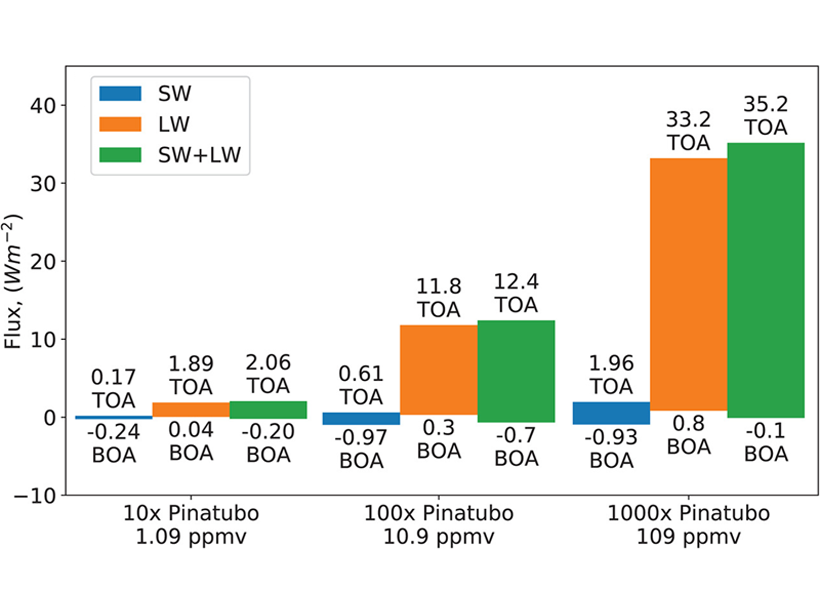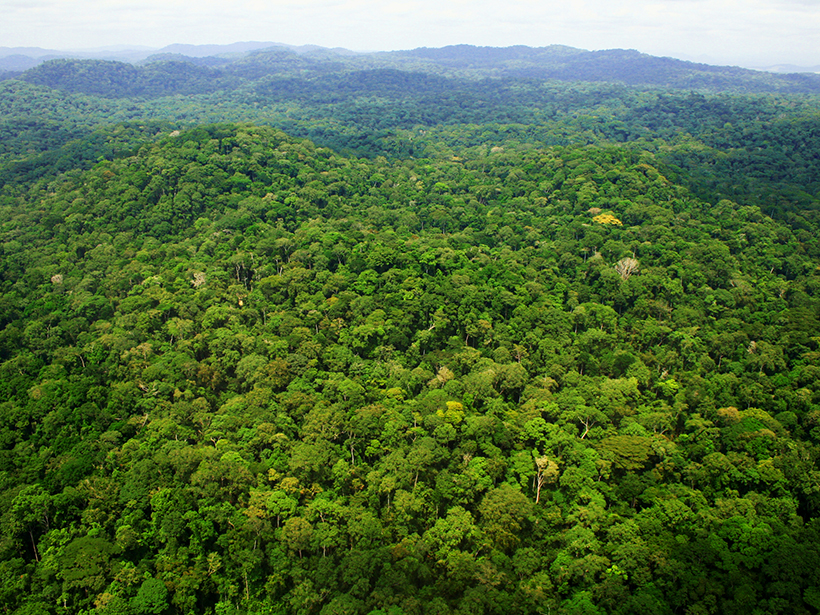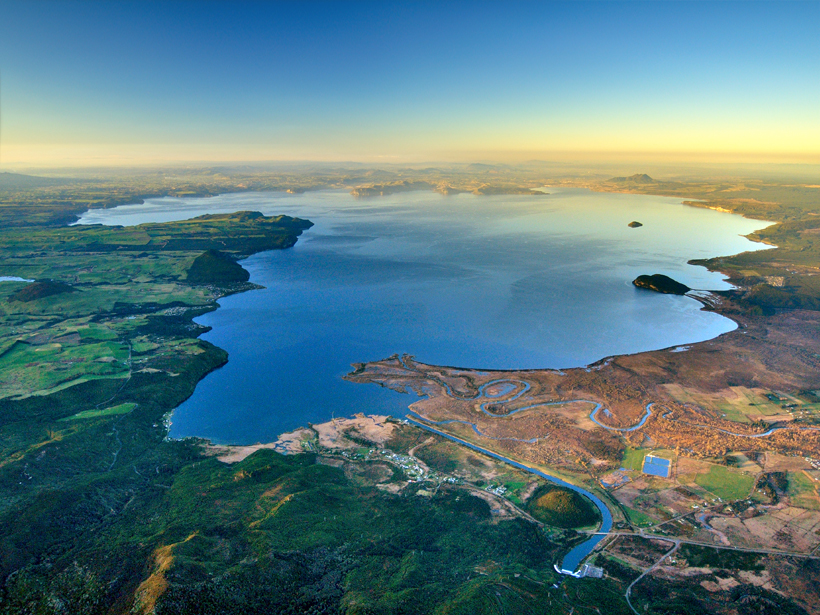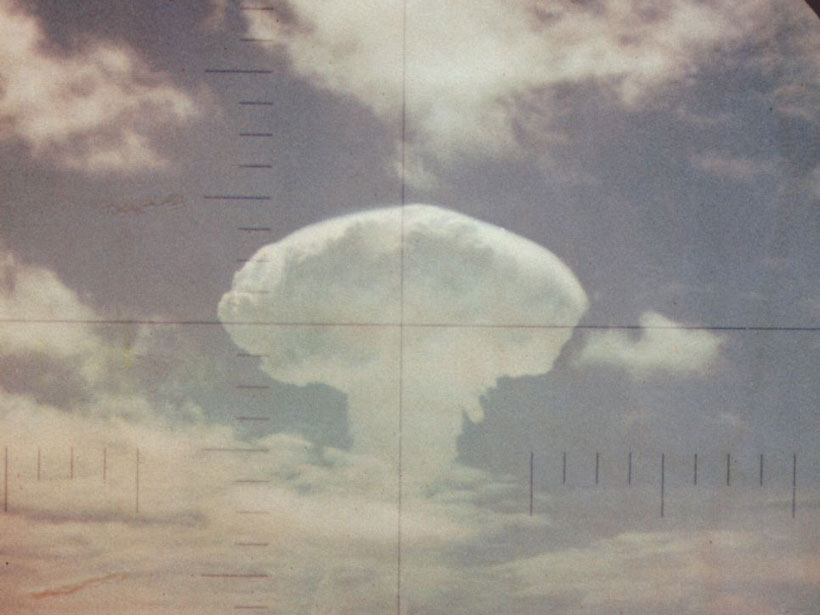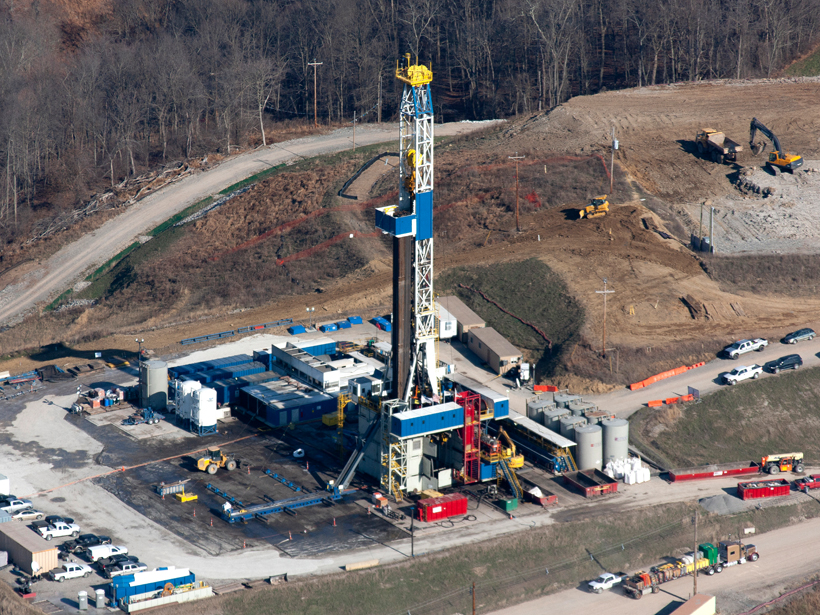Volcanoes can warm as much as they cool. Prior simulations have neglected the important warming effects of sulfur dioxide emissions, making some results colder than they should be.
Hazards & Disasters
Tropical Forests Are Losing Their Ability to Soak Up Carbon
The forests could switch from a carbon sink to a carbon source by the mid-2030s.
Implications of a Supervolcano’s Seismicity
Last year’s rumblings beneath New Zealand’s Taupō supervolcano, the site of Earth’s most recent supereruption, lend new urgency to research and outreach efforts in the region.
Coastal Wetlands Save $1.8 Million per Year for Each Square Kilometer
The protective value of a plot of wetlands varies widely based on the county it shields from storm-related property damage.
Combining AI and Analog Forecasting to Predict Extreme Weather
New deep learning technique brings an obsolete forecasting method “back to life” to predict extreme weather events.
Nuclear War Would Spawn a “Nuclear” El Niño
A jolt to the climate system provided by nuclear war could spur an El Niño like we’ve never seen before.
Could Wildfire Ash Feed the Ocean’s Tiniest Life-Forms?
Ash falling on the ocean after a wildfire could fuel plankton growth.
How Death and Disaster Followed the Shale Gas Boom in Appalachia
In the past decade, fracking has contributed to the deaths of more than a thousand people and the emission of more than a thousand tons of carbon dioxide in the Appalachian Basin.
Space Traffic Management: Better Space Weather Forecasts Needed
Better forecasts of space-weather driven changes in thermospheric density are urgently needed to ensure safe management of the rapidly growing volume of space traffic in low Earth orbit.
Climbing the Occasionally Cataclysmic Cascades
Living in Geologic Time: Every one of the Pacific Northwest’s volatile volcanoes is likely to erupt again before the range goes extinct.

